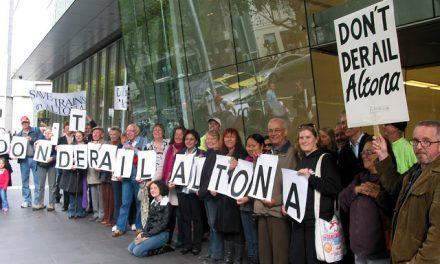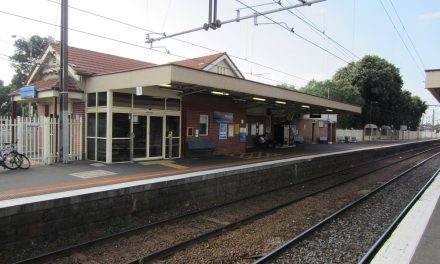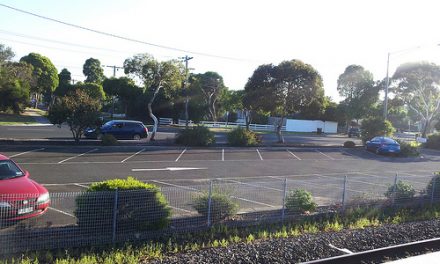A report from The Age today has confirmed the inconvenience and compromised service that Altona passengers have been experiencing. Read the entire article here. I will just quote those sentences that mention the Altona Loop.
Figures provided to The Age show there were 9343 ”short services” (trains that did not complete a full scheduled service) and loop bypasses in the city and at Altona in 2010 – but only 1766 cancellations recorded for the incidents.
Public Transport Minister Terry Mulder said he was concerned by the number of trains bypassing stations. ”I have been concerned for more than a year about the number of Werribee line trains that are suddenly bypassing Seaholme, Altona and Westona stations,” he said.
Metro spokesman Chris Whitefield said services were sometimes diverted to run express (and not via the City or Westona loop) or were cancelled during a scheduled journey (short service) to avoid causing congestion or knock-on delays and disruptions for passengers.
I like what Daniel Bowen from the Public Transport Users Association has said: ”As far as the passenger is concerned, the train is cancelled if it doesn’t arrive. Clearly, if you are standing on the station and the train has bypassed that station and you can end up waiting 20 minutes for the next one, that has a big impact on delaying your journey and overcrowding the next service.”
Former public transport minister Martin Pakula when asked by reporters, said he had raised with Metro, constituents’ concerns that trains were bypassing stations in the western suburbs. He said: “I let Metro know in my brief tenure as minister that I didn’t think it was on and they certainly undertook to me that it was a practice they were going to minimise. Certainly, in their discussions with me, their primary motivation was that if the trains were running behind time it was a way of making up time.” (Ref 1)
Chris Whitefield said a short service was considered as contributing to 25% of a cancelled service and a bypass accounts for 12.5% (Ref 1).
Gathering from what were revealed to the mass media, I do not think that the proposed running of the Altona Loop as a shuttle service is motivated by the need to accommodate more services. Firstly, there is no increase in services for the Werribee and Williamstown Lines under the proposed changes, with trains running every 22 instead of 20 minutes. Any increase in train services only occurs in the eastern suburbs. An immediate effect of shunting off the Altona Loop from the Werribee Line is that there will no longer be any bypass of the Altona Loop during non-peak hours. As a a bypass still contributes to 12.5% of a cancellation, the punctuality and performance targets of the train operator will be improved just by this change, even if there is no real improvement in services.
Secondly, there are several single-track sections in other parts of the train network. In those sections, there are no alternative tracks so the trains have no choice but to go through it. The operator is forced to make negotiating those single-track sections work. This is a different story with the Altona Loop. There is a separate set of tracks north of residential Altona that run directly between Newport and Laverton. The train operator will be tempted to use these separate tracks whenever trains run late, as it presents an easy way of making up for lost time and improving the statistics.




